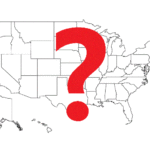The Center for Biological Diversity filed a Freedom of Information Act request seeking the Federal Energy Regulatory Commission’s communications with a secretive front group that’s demanding a nationwide ban on state retail net-metering programs for distributed solar energy.
The Center also intervened in the FERC petition filed by the New England Ratepayers Association. The association’s petition would overturn the agency’s prior rulings that net metering is under state and not federal control.
“The public has the right to know if FERC is collaborating with anti-solar utility or industry groups to undermine the move to clean energy,” said Howard Crystal, legal director of the Center’s Energy Justice Program. “It’s despicable that this shadowy group is using this moment of a national emergency to launch an all-out attack on a crucial clean energy policy. We need to see who’s behind this effort.”
States across the country use net-metering policies to fairly compensate rooftop- and community-solar owners for excess electricity their panels send to the grid. These programs have been critical drivers of clean energy investment and job development for decades.
On April 14, the New England Ratepayers Association filed a petition asking FERC to declare that the federal government has exclusive jurisdiction over customer-sited energy generation like rooftop and community solar. If FERC signs off, state authority to pass net-metering policies would be abolished.
The association’s petition relies on thoroughly debunked industry talking points that solar customers are unfairly subsidized, ignoring both the enormous subsidies given to the fossil fuel industry and distributed clean energy’s power to curb pollution, improve the grid and otherwise advance the vital clean energy transition. If FERC grants this petition, the deployment of rooftop and community solar could be threatened.
News item from The Center for Biological Diversity






“The Center for Biological Diversity filed a Freedom of Information Act request seeking the Federal Energy Regulatory Commission’s communications with a secretive front group that’s demanding a nationwide ban on state retail net-metering programs for distributed solar energy.”
A push to the Supreme Court of the United States, to “firm up” policy that FERC actually has a “limit” to the power to “regulate”.
“The Center also intervened in the FERC petition filed by the New England Ratepayers Association. The association’s petition would overturn the agency’s prior rulings that net metering is under state and not federal control.”
In TEXAS, there seems to be a determination, that FERC is not involved in ‘intrastate’ electricity regulation, but can get involved if a power corridor leaves the boundary of one State and into another State of the Union. This happened with a project of a natural gas pipeline from Louisiana and into Texas, FERC inserted itself into the inspection, regulation of this project.
“The association’s petition relies on thoroughly debunked industry talking points that solar customers are unfairly subsidized, ignoring both the enormous subsidies given to the fossil fuel industry and distributed clean energy’s power to curb pollution, improve the grid and otherwise advance the vital clean energy transition. If FERC grants this petition, the deployment of rooftop and community solar could be threatened.”
There are several States that have “no” net metering programs per say. Georgia has been known as a “solar PV” unfriendly State. Several ‘other’ States have some ‘quasi-metering’ program in place. APS in Arizona “allows” something like 7 or 8 cents/kWh for excess electricity pushed back onto the grid by individual solar PV installations. APS charges somewhere around 12 to 16 cents/kWh retail electricity rates. So, there are already programs that have been vetted by a Public Utility Commission or a State Corporation Commission to set a “program” and electricity rate for excess distributed solar PV generation. The asinine “claim” by entities like Rocky Mountain Power, that excess solar PV generation pushed back onto the grid should be (compensated) at 1.5 cents/kWh is usury and theft. I would expect RMP to be a “principle” in this duplicity and larceny, after all, in Wyoming they have levied a $5 charge per MWh of generated wind power to help fill the State’s general fund coffers.